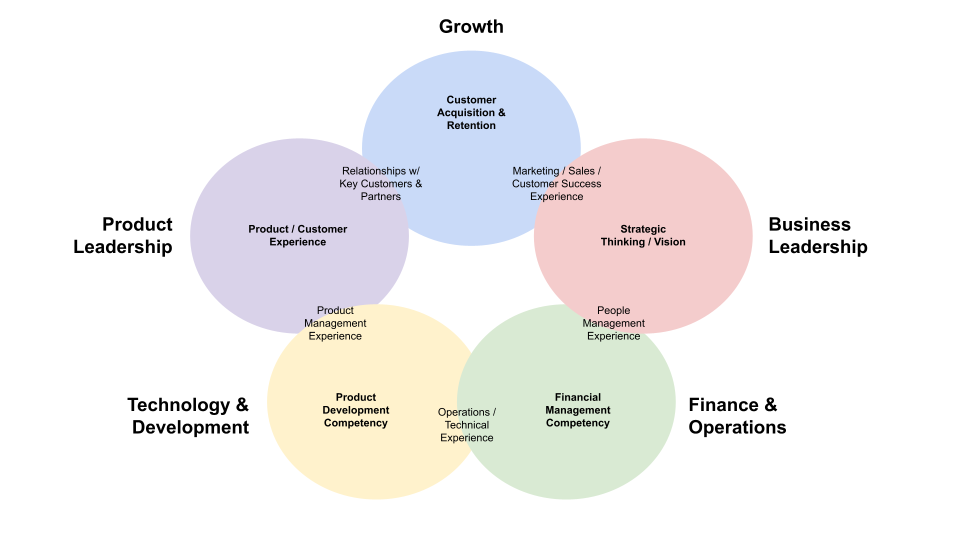Here’s what you should know:
- Equity Distribution: Instead of splitting equity equally among co-founders, distribution should be based on the allocation of responsibilities and expected contributions, reflecting the differing levels of commitment, skills, and value each founder brings to the startup.
- Defining Roles and Additional Factors: Before discussing equity, define each founder’s roles and responsibilities. Incorporate factors such as past and future financial contributions, experience, expertise, vesting schedules, and potential exit scenarios when determining equity share.
- Compensating Advisors & Valuing Ideas: Avoid giving equity to advisors who are not playing a major role in the business. While ideas are important, they are usually valued in the 1-5% equity range as execution is more critical to the success of a startup.
- Documentation and Legal Considerations: After determining equity distribution, document the agreement in writing, even before forming the company. This document should be reviewed and formalized with legal counsel to ensure all edge cases and potential scenarios impacting founder equity are considered.
When launching a startup, one of the most critical decisions co-founders must make is how to divide equity. Ensuring a fair and thoughtful distribution of equity can be the key to long-term success and strong working relationships. In this blog, I will discuss how Mark II approaches dividing equity among co-founders.
Instead of an equal equity split among founders, I recommend basing equity distribution on responsibility allocation and contribution expectations. This approach acknowledges the varying levels of commitment, skills, and value that each founder brings to the table.
The Importance of Defining Roles and Responsibilities
Before diving into equity discussions, it is essential to define each founder’s role and responsibilities. This process provides a clear understanding of each person’s contribution and helps establish expectations. Founders should also consider factors such as their skills, expertise, and the time and effort they are willing to commit to the startup before earning a salary.
Avoid the temptation to say “we’ll each do everything equally.” This is simply not true and never works the way you think it will. Instead, take the time to conduct a candid, honest self-appraisal of your individual skills and capabilities. Then determine who is best suited to own each core responsibility area based on their prior experience and skills.
To assist in this process, we’ve developed this “Founding Team Competency” diagram to help facilitate the discussion between founders about who will own what areas.

This isn’t meant to capture everything that goes into building a startup but more as a facilitator of the conversation about what each founder will be responsible for and the prior experiences that typically assist in fulfilling those responsibilities.
Incorporating Additional Factors
While responsibility allocation is a crucial consideration, other factors can also impact the equity distribution:
-
Past and future financial contributions: Consider the capital or resources founders have already invested or will invest in the future. Who’s going to cover the small ancillary costs of incorporating a business, dev environment, etc?
-
Experience and expertise: A founder with extensive industry experience or specialized skills may warrant a higher equity share. This is especially true for a founder with prior startup success who has experience building a company from scratch.
-
Vesting schedules: Implement vesting schedules to ensure founders remain committed and motivated over time. Typical vesting schedules will range from 2 to 4 years depending on the founder’s responsibilities.
-
Exit scenarios: Discuss potential exit scenarios and how they might impact the equity distribution. This can help prevent future disagreements or disputes.
Compensating Advisors & Mentors
First-time founders are often tempted to offer equity to anyone and everyone who they think might be helpful. This is usually not advisable. In most cases, we recommend that founders equity only go to people who are truly going to play a crucial role in building the business.
This means we recommend avoiding giving equity to early advisors and others who are not taking a major role in the business. Most mentors (at least the ones you would want) will offer their advice without equity. And in our experience, most advisors who get equity are almost always less helpful than you expected.
Eventually, you’ll likely create an option pool that could be used to properly incentivize strategically valuable supporters who are not FT contributors (such as board members or uniquely positioned industry influencers).
How to Value the Original Idea
“So how much is the idea itself worth? Do you deserve more equity since you’re the one with the idea? ”
Let’s assume you and a friend want to build a new SaaS product. You had the idea, but they have the experience. So how much is the idea itself worth? Do you deserve more equity since you’re the one with the idea?
We encounter this question A LOT. Our view (informed by the experience of having had lots of our own ideas and building a few of those into successful companies) is that ideas are cheap. No matter how good your idea is, the execution is what really matters. The startup graveyard is full of great ideas that were poorly executed.
And the majority of the time, whatever the original idea was ends up being quite different from the product that succeeds in the market. This is because that original idea is just a starting point. Based on testing that original idea with customers, you’ll learn, adjust, and pivot. Sometimes the final product and business model are very different than the idea that sparked the journey.
Translating this into something more tangible, we typically value ideas themselves in the 1-5% of founding equity range. If someone pitches us a raw idea and doesn’t want to have any involvement in executing on the idea, we typically give them around 3% of the founding equity for having been the inspiration for the company. But the majority of equity goes to the individuals who will do the hard work to turn that good idea into a successful business.
Putting it All Together
Now that you’ve thought about the responsibilities and contributions of founding team members, you need to translate that into an actual equity division. We often recommend using a few of the better co-founder equity calculators to assist in this process. You don’t have to take what they recommend, but calculators such as these will help you gut-check your individual opinions with a more objective feedback mechanism.
We like these two calculators the best: Carta Cofounder Equity Calculator and Capbase Equity Split Calculator
Documenting the Agreement
Once you have determined the appropriate equity distribution, document your mutual understanding in writing. This could initially be as simple as an email exchange or a memo that captures the business intent and mutual understanding that everyone agrees to.
We recommend going through this step even if you’re great friends and trust each other. By writing down your intentions related to the division of responsibilities, mutual expectations of founders, and the corresponding division of equity in simple language (i.e. not legalese), you help avoid future misunderstandings or disagreements. And this should be done at the beginning of your entrepreneurial journey before a company is formed or any significant work is performed. That way everyone goes into the new venture with a clear understanding of the intended economic outcomes if you’re successful.
Once you form your company, this mutual understanding will be formalized through your founder stock subscription agreements and founder vesting schedules (or stock restriction agreements). These should be reviewed with your legal counsel to ensure that the full intent of your mutual understanding is captured. They can also help you think through all the edge cases and understand the scenarios that could impact founder equity (such as a founder leaving the company, etc).
Conclusion
In closing, dividing equity among co-founders is a crucial decision that can significantly impact the success and harmony of a startup. By focusing on the responsibilities and contributions of each founder, you can establish a fair and effective equity distribution that benefits everyone involved. Remember to document your decisions and revisit the agreement as needed to accommodate changes in the startup’s circumstances or team dynamics.








